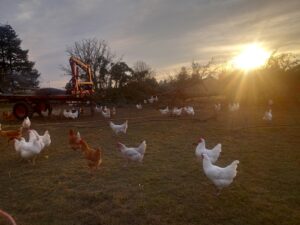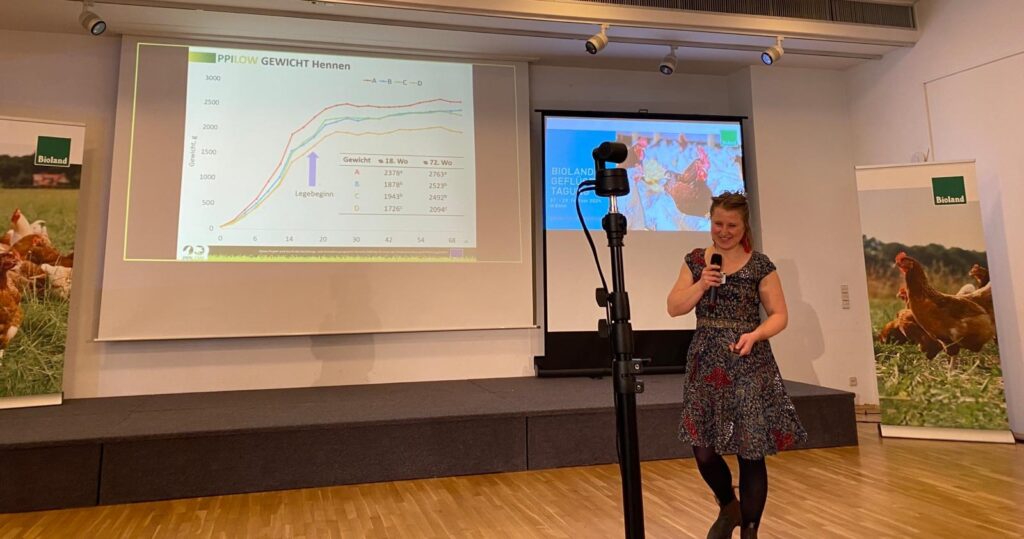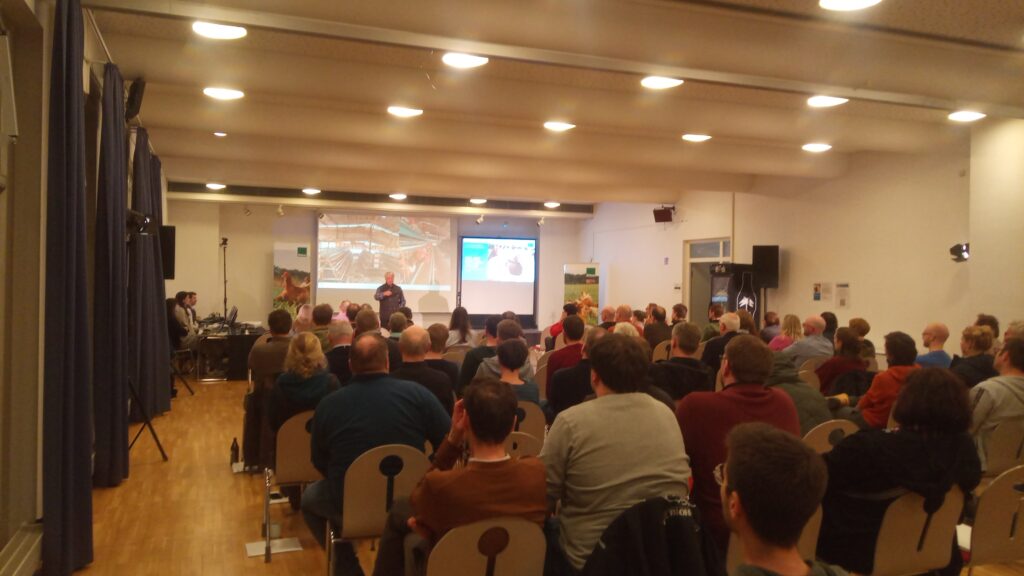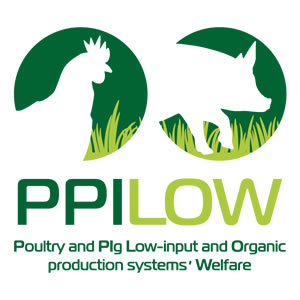PPILOW Workshop at the 28th International Poultry Conference
– Helen Pluschke, Daniela Werner (Thuenen)
 Bioland is the biggest organic farming association in Germany. Founded in the 1970`s, it has nearly 8.700 members and 1.400 partners in production, trade and gastronomy. Consulting and knowledge transfer are one of their key activities including annual conferences focusing on specific farm animal species. This year’s International Poultry Conference was held from the 27th to the 29th of February in Bonn and was organized in cooperation with the Thuenen-Institute for Organic Farming. About 80 participants from farmers, advisors, breeding, feeding and meat processing companies as well as researchers came together under the motto “Turning appreciation back into added value”. The programme included lecture blocks, best-practice reports and discussion panels covering themes from recent research on dual-purpose chicken, circular economy and animal welfare. Field trips to Bioland member farms, a hatchery and an online retailer of poultry supplies were also part of the three-day conference. A field trip to the pits of Europe’s formerly largest brown coal mine Hambach (which is no longer in operation) left a lasting impression on the participants. The second day of the conference was divided into parallel presentation sessions. The PPILOW workshop block started with Helen Pluschke and Petra Thobe presenting results of an on-station trial, the practical application and the economic evaluation of certain dual-purpose chickens.
Bioland is the biggest organic farming association in Germany. Founded in the 1970`s, it has nearly 8.700 members and 1.400 partners in production, trade and gastronomy. Consulting and knowledge transfer are one of their key activities including annual conferences focusing on specific farm animal species. This year’s International Poultry Conference was held from the 27th to the 29th of February in Bonn and was organized in cooperation with the Thuenen-Institute for Organic Farming. About 80 participants from farmers, advisors, breeding, feeding and meat processing companies as well as researchers came together under the motto “Turning appreciation back into added value”. The programme included lecture blocks, best-practice reports and discussion panels covering themes from recent research on dual-purpose chicken, circular economy and animal welfare. Field trips to Bioland member farms, a hatchery and an online retailer of poultry supplies were also part of the three-day conference. A field trip to the pits of Europe’s formerly largest brown coal mine Hambach (which is no longer in operation) left a lasting impression on the participants. The second day of the conference was divided into parallel presentation sessions. The PPILOW workshop block started with Helen Pluschke and Petra Thobe presenting results of an on-station trial, the practical application and the economic evaluation of certain dual-purpose chickens.

During the discussion it became clear that creative ways to do economic analysis of dual-purpose poultry are needed and the optimization of the feeding regime of dual-purpose poultry should be the focus of future research. Claire Bonnefous presented results on the improvement of range use in broilers from the PPILOW project. This was followed by the presentation of results on range use and predator losses in broilers from a Thuenen-Institute project by Severin Hübner. The two presentations shed light on this topic from two different project perspectives. Saskia Kliphuis (Utrecht University) presented results from the PPILOW concerning different lighting regimes during incubation and feeding of insect larvae and their influence on fearfulness and feather pecking in the rearing period of laying hens. During the discussion it became clear that some of the tested lighting regimes in this study would not be applicable for Bioland certified hatcheries and/or farmers as the applicable regulations are more detailed here (e.g. daylight during incubation). Rikke Brodsgaard Kjaerup (University of Aarhus) closed the session with her presentation on the use of alternative plants for deworming laying hens which especially found interest in feed manufacturers, who wanted to know which plant extracts could be used in the production of ready-mixed compound feed. Overall, the feedback concerning the PPILOW block was positive as it highlighted the importance of collaborative research and gave the audience insights into the current focus of European research in the organic poultry sector. With guest speakers from France, Denmark and the Netherlands, the international part of the conference, which had become somewhat stagnant in recent years, was successfully revived. A video recap of the conference can be found here!

© all Photos/Pluschke

